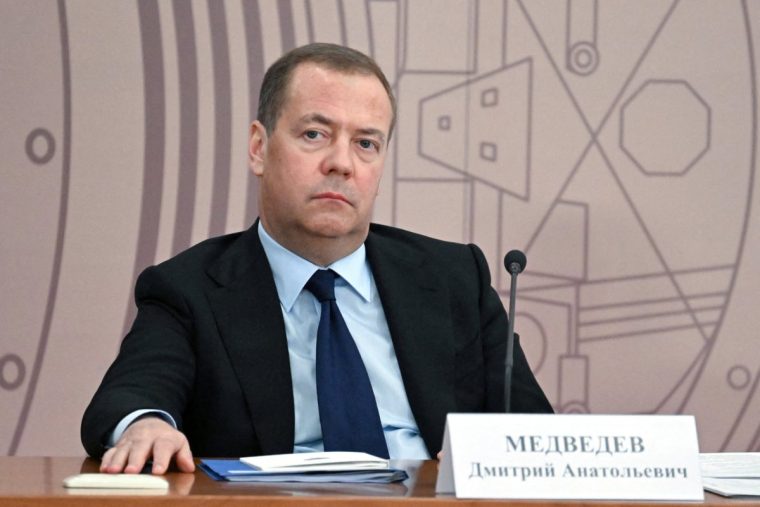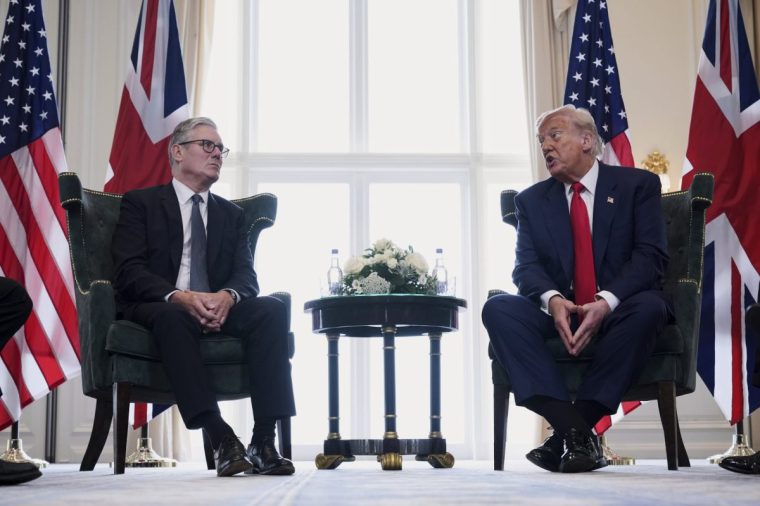Behind the bluster, the Kremlin may still be ‘genuinely worried’ about threats from Trump, who ‘changes by the day’
Russia is pursuing a narrative that Donald Trump “is a bit of a joke” as it reacts to the US President bringing forward a deadline for Vladimir Putin to make progress on ending his war in Ukraine, experts say.
However, they warn that while the Kremlin does not appear hugely troubled by the latest threats, it may be genuinely worried that an unpredictable Trump could make things difficult for Russia.
Responding to Trump’s threat to impose new sanctions within “10 or 12 days” if Moscow fails to show good faith – as opposed to an original 50-day deadline – Russian Senator Vladimir Dzhabarov told the newspaper Izvestia that “Moscow has no intention of caving to pressure”.
“The ultimatum itself was not taken seriously, neither the 50 days nor the 10-12 day one,” read another article in the Russian daily.
The former prime minister and now Deputy Chairman of the Security Council Dmitry Medvedev took to X, comparing Trump to “Sleepy Joe [Biden]”, warning him not to “step towards war… with his own country”.
Medvedev also hit back at Russia hawk and US senator Lindsey Graham, who earlier wrote on social media that “to those in Russia who believe that President Trump is not serious… you and your customers will soon be sadly mistaken”. Medvedev replied: “It’s not for you or Trump to dictate when to ‘get at the peace table’”, adding: “Work on America first, gramps!”

The bullish response and the mocking tone of some Russian officials is no surprise to Dr Stephen Hall, lecturer in Russian politics at the University of Bath.
“Russia will be throwing a lot of narratives at the wall and seeing what sticks, including, yes, that [Trump’s] a bit of a joke, that Russia can get through this, that Trump is the same as sleepy Joe Biden… and they will always refer back to ‘Taco’,” Hall told The i Paper, referring to the “Trump Always Chickens Out” acronym that originated in the US, but which has since permeated throughout Russian social media.
“Generally, they are not going to take it very seriously,” agreed Dr Marcin Kaczmarski, a Russian foreign expert at the University of Glasgow.
He told The i Paper: “The Kremlin still hopes to get two things at the same time. Rapprochement from the US and turning that relationship into one that works for them, while not giving up on any of their maximalist demands in Ukraine.”
When Trump first announced the 50-day deadline this month, Moscow’s stock exchange actually rose by 2.7 per cent. Monday’s announcement, made alongside Sir Keir Starmer in Scotland, was received less positively, with shares dropping by around 1 per cent.
However, Kaczmarski warned that “none of that really matters”, adding: “The only thing that keeps Russia going is its oil exports”.

Almost a third of Russia’s federal budget revenues depend on the country’s oil and gas sector.
Something that could seriously dent Russian oil revenue would be secondary tariffs on Russian trading partners, particularly China and India – who purchased 47 per cent and 38 per cent of Russian crude oil in April, respectively, according to the Centre for Research on Energy and Clean Air.
Trump said on Monday that he would “maybe” implement those secondary tariffs.
However, Kaczmarski is doubtful he will: “Trump seems to want a trade deal with China now. He won’t risk that deal with secondary sanctions.”
The US leader may be equally reluctant to upset India by shutting off their cheap Russian oil and gas, when in recent years it has been US foreign strategy to try and “peel off India from China”, Hall said.
Meanwhile, Trump’s threat to impose 100 per cent tariffs on Russian exports to the US “holds very little weight in a country that trades only a few billion dollars with the US annually,” said Professor Bülent Gökay, author of The Politics of Oil.
The Kremlin will see all of this, Kaczmarski said, and recognise there is a “lack of any real pressure” from Trump.
The Russian business daily newspaper Vedomosti quoted Pavel Koshkin, Senior Research Fellow at the Institute for US and Canada Studies in Moscow, as saying that Trump’s position on the war, which has traditionally been more sympathetic to Russia than Ukraine, was unlikely to change dramatically.
“US support for Ukraine through European partners will continue, but Trump is unlikely to endorse a genuinely tougher stance on Russia,” Koshkin said.
Russian newspaper Moskovsky Komsomolets put Trump’s newest ultimatum down to the confidence boost the US President has received after a series of recent political wins, including closing a trade deal with the EU and taking some credit for a ceasefire between Thailand and Cambodia. “We have a Trump on a high from thinking how cool he is from foreign policy successes,” the newspaper reported on Tuesday morning.
Nezavisimaya Gazeta, another Russian daily, said he was “dizzy from success”.
But behind the bluster, the Kremlin may still be “genuinely worried”, said Hall. “Trump changes by the day, employing a sort of Mad Max persona which can be worrying for a regime that likes to know what the other side is thinking.”
This was perhaps reflected in the daily press briefing given by Dmitry Peskov, Putin’s spokesman, in which he said Moscow had “recorded a slowdown in the process of normalising bilateral relations” with Washington.
“As always, the Kremlin will just play the waiting game and see what is going to happen,” said Hall. “They will watch this space to see if Trump follows through – which he hasn’t been particularly good at so far.”
